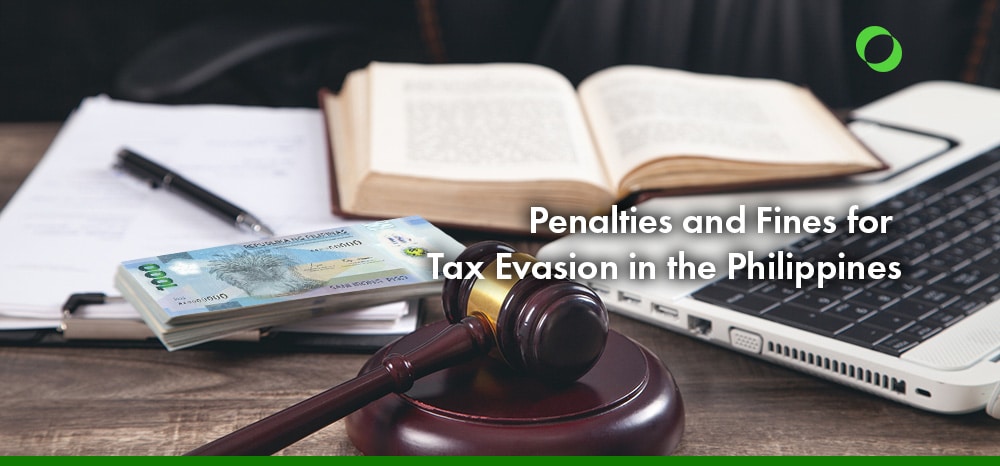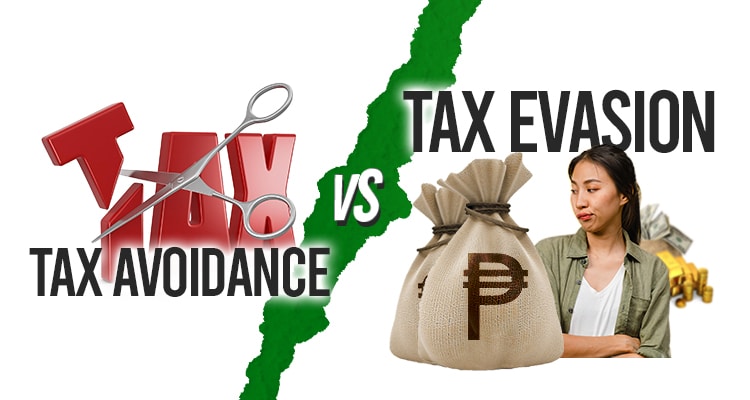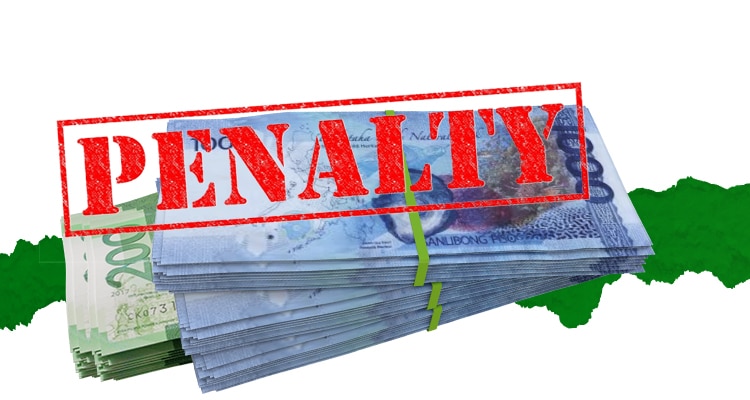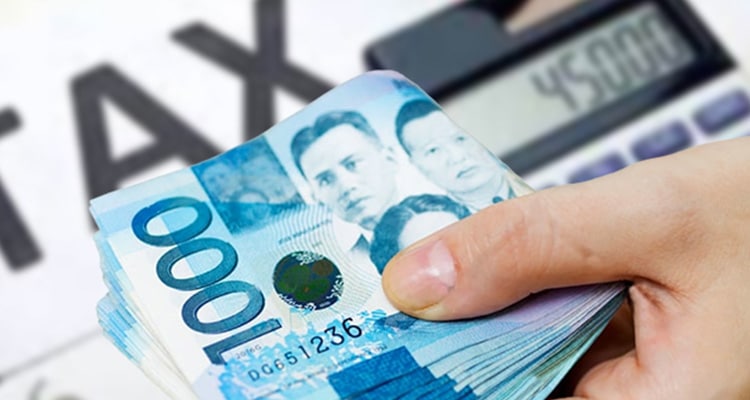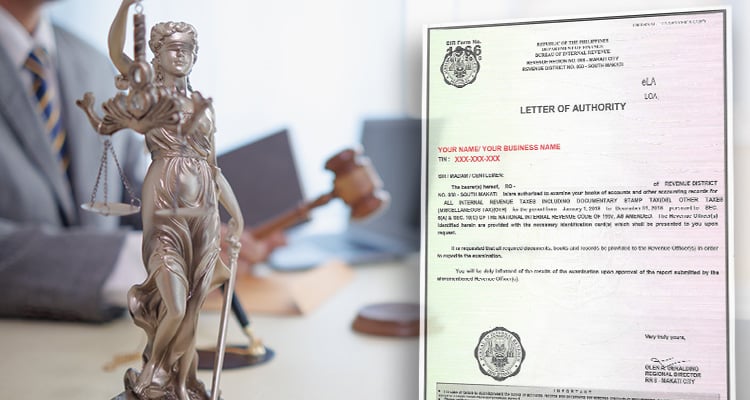Disclaimer: This article was written for informational purposes only and does not constitute legal or financial advice. Always consult a certified public accountant or tax lawyer for further guidance.
Remote working has brought in stable sources of income for Filipinos, even when they work from home.
Salaries from remote jobs can rival the ones earned in CBDs. Plus, the lack of commuting means you can have more time with your family or for your passion projects.
However, when you earn income, you’re also required to pay taxes. Despite what many people think, paying taxes comes with a lot of benefits.
(If you want to register, you can check this guide on how to file your ITR as a remote worker or freelancer in the Philippines.)
One advantage is peace of mind.
Even if you’re not apprehended now, you could be caught later – what with tax authorities cracking down on tax evaders.
So here’s what you need to know about tax evasion in the Philippines.
Tax Avoidance Versus Tax Evasion
First, let’s talk about the difference between tax avoidance and tax evasion.
While tax avoidance is legal, tax evasion in the Philippines is a serious crime that comes with hefty fines or even imprisonment.
Tax Avoidance Examples in the Philippines
Tax avoidance is the legal practice where you use multiple lawful means to lower your tax liability. This can include tax deductions, tax credits, and applicable exemptions.
Here are some of the most common -and legal ways- individuals and businesses reduce their taxes:
- Using the 8% flat income tax rate – Instead of the graduated income tax rates plus percentage tax, self-employed individuals and professionals can choose the flat 8% option for simpler filing and potential savings.
- Maximizing tax-deductible expenses – Claiming allowable deductions such as internet bills, office rent, utilities, and work-related tools and equipment.
- Availing of tax exemptions – For example, minimum wage earners are exempt from income tax, and certain allowances and benefits fall under tax-exempt categories.
- Contributing to SSS, PhilHealth, and Pag-IBIG – Contributions are deductible, which lowers taxable income.
- Claiming input VAT credits – For VAT-registered businesses, input tax on purchases can be credited against output tax, lowering the net VAT payable.
- Maximizing capital gains exemptions – Selling a family home and reinvesting proceeds in another principal residence can qualify for capital gains tax exemption.
These are lawful tax-saving strategies and should not be confused with tax evasion, which involves fraud, concealment, or deliberate non-payment.
Tax Evasion Examples in the Philippines
On the other hand, tax evasion is deliberately misrepresenting or concealing information to reduce tax liability.
Tax avoidance is legal while tax evasion is a crime that comes with hefty fines — or worse, imprisonment.
Here are some common examples of tax evasion in the Philippines:
- Underreporting Income – Not declaring all earnings from freelance work, online jobs, or business operations.
- Overstating Expenses – Claiming fictitious or inflated expenses to reduce taxable income.
- Using Ghost Receipts – Issuing or claiming fake receipts to avoid paying the correct taxes.
- Failing to Pay Taxes – Simply not remitting the taxes due to the BIR.
- False or Fraudulent Filing – Submitting incorrect information on tax returns, such as misreporting sales or income.
- Hiding Assets Abroad – Not declaring foreign bank accounts, investments, or other assets.
- Multiple Sets of Invoices – Using unregistered or duplicate invoices to manipulate reported income.
These actions are all considered criminal offenses under Philippine law.
How the BIR Detects Tax Evasion
The Bureau of Internal Revenue (BIR) has several ways of finding out if someone is not paying the right taxes.
Even if you think your chances of getting caught are small, the truth is the system is designed to spot inconsistencies:
Cross-checking records
The BIR compares your declared income with reports from employers, clients, or other institutions. If the figures don’t add up, that’s a red flag.
What about bank deposits?
Under the Bank Secrecy Law, the BIR cannot just peek into your bank accounts during a routine audit. They can only do so if:
- You give written consent,
- A court issues an order (e.g., in cases of tax fraud, estate tax, or compromise agreements), or
- The Anti-Money Laundering Council (AMLC) flags suspicious activity and gets judicial approval.
So while the BIR doesn’t freely check deposits, they often rely on third-party reports (like client declarations or employer expenses) and compare these against your own tax filings.
If your reported income looks too low compared to what others declare they’ve paid you, you could still be investigated.
Third-party reporting
Clients, companies, and other institutions also submit reports to the BIR.
For example, if a company pays you for freelance work and declares this as an expense, but you don’t declare it as income, the BIR can spot the mismatch.
Lifestyle checks
If you declare a very modest income but live a lifestyle that doesn’t match (like owning luxury cars, expensive properties, or traveling frequently) the BIR may investigate further.
Data matching with other agencies
The BIR works closely with other government offices such as the Bureau of Customs, the Securities and Exchange Commission (SEC), and even LGUs.
By comparing data across these agencies, they can quickly identify discrepancies in income and taxes.
Audit programs and surprise checks
The BIR regularly audits businesses and professionals.
They also conduct tax mapping (visiting establishments to check compliance) and issue closure orders to businesses that fail to file or underreport their sales.
Ghost receipts and false deductions
Using fake or inflated receipts to reduce taxes is one of the top ways taxpayers get caught.
The BIR has already filed multiple cases against companies and individuals involved in these “ghost receipt” schemes.
So what will happen if you don’t pay your taxes? Here are the penalties and fines for tax evasion in the Philippines.
Penalties and Fines for Tax Evasion in the Philippines
The Bureau of Internal Revenue imposes strict penalties for tax evasion in the Philippines, ranging from surcharges and compromise penalties to imprisonment.
Here’s a breakdown:
12 to 20% Annual Interest on Unpaid Taxes
You are required to pay annual interest on the taxes you haven’t paid.
12% will be levied on the unpaid amount for unpaid taxes after the implementation of RA 10963 (December 2017).
Unpaid taxes before RA 10963 will be levied a 20% annual interest.
25% or 50% Surcharge
When you don’t pay your taxes, you have to pay a surcharge. It’s a one-time penalty applicable for each non-payment and failure to file income tax return in the Philippines.
25% will be charged to the following:
- Failure to file or pay your taxes on time.
- Filing your taxes with another Revenue District Office (RDO) other than the ones assigned to you.
- Failure to pay the deficiency in taxes within the prescribed time.
- Failure to pay in part or in full of the tax due for any return required to be filed.
An additional 50% will also be applied in the following circumstances:
- Willful neglect to file your taxes.
- False or fraudulent filing of taxes.
Compromise Penalties
Rather than filing criminal charges, the BIR can opt for compromise penalties instead, depending on the nature of the violation.
The amount can range from Php 1,000 to Php 50,000.
More serious violations may warrant higher amounts, up to Php 100,000, as specified under certain provisions of the National Internal Revenue Code (NIRC).
Important caveat: Acts of fraud, such as submitting falsified documents, cannot be compromised and must be referred to prosecution.
Difference Between Negligence and Fraud in Tax Filing
Not all mistakes in tax filing are the same. The BIR checks if the error was accidental or intentional.
- Negligence – These are unintentional mistakes, like miscalculating your tax, forgetting a small source of income, or filing late. You may pay penalties and interest, but it’s not considered a crime.
- Fraud – This is when someone purposely hides income, submits fake receipts, or falsifies records to lower their taxes. Fraud is a serious offense that can lead to big fines and even jail time.
For remote workers and freelancers, this means that honest mistakes will cost you money, but deliberate cheating can cost you your freedom.
Imprisonment and Fines
The tax evasion punishment in the Philippines can be severe. If proven guilty, fines can range from Php 500,000 to Php 10,000,000.
On top of that, you can also be imprisoned for no less than six (6) years but no more than ten (10) years.
Grounds for fines and imprisonment for tax evasion penalty in the Philippines are as follows.
- Issuing receipts and invoices not accredited by the BIR.
- Using multiple sets of invoices and receipts.
- Using invoices without a business name and tax identification information.
How to Avoid Committing Tax Evasion by Accident
Many freelancers and remote workers don’t mean to break the rules but can get into trouble because of mistakes or the sheer lack of knowledge.
Here are some tips to stay safe:
- Keep good records – Save all invoices, receipts, and payment proofs. Organize them monthly so you won’t scramble during tax season.
- Issue proper receipts – If you’re registered with the BIR, always give official receipts for payments you receive. This is part of compliance.
- File returns on time – Mark deadlines on your calendar. Late filings lead to penalties, even if you pay your taxes.
- Report income honestly – Declare all your earnings, whether from local or foreign clients.
- Seek help if needed – Consult a CPA or tax professional if you’re unsure about filing. It’s cheaper than having to pay penalties later.
Voluntary Disclosure Program (VDP) in the Philippines
In many countries, a Voluntary Disclosure Program (VDP) lets taxpayers pay what they owe with lighter penalties.
In the Philippines, there’s the Voluntary Assessment and Payment Program (VAPP) under Revenue Regulations No. 21-2020.
This covered 2018 income taxes and certain fiscal years. Taxpayers who paid under VAPP were given immunity from audit for those periods.
The deadline to join was first set for December 31, 2020, then extended to June 30, 2021. Since then, the program has ended and is no longer available.
For now, the best way to avoid penalties and stress is still to file and pay your taxes correctly and on time.
Impact of a Tax Evasion Case on Your Career and Finances
The effects of tax evasion go beyond paying penalties or spending time in court. A case against you can affect your livelihood and opportunities in many ways:
Damaged reputation
Getting charged with tax evasion can hurt your professional image.
Clients, employers, and even business partners may question your credibility, which could cost you future work or contracts.
Difficulty getting loans or credit
Banks and lenders usually check your financial records.
If you have a pending tax case or history of non-compliance, they may deny your loan application/s or impose stricter requirements.
Possible travel restrictions
In serious cases, the government may put your name on hold departure lists. This means you could be barred from leaving the country while your case is ongoing.
Stress and lost opportunities
Aside from money, dealing with investigations and hearings can take up your time and energy.
This can prevent you from focusing on your work, family, or growing your business.
Recent Cases of Tax Evasion in the Philippines
The BIR has been strict in going after violators. From big businesses to public figures, recent cases show that tax evasion is taken seriously.
Here are some recent and famous tax evasion cases in the Philippines.
Php 8.5 Billion Illicit Cigarette Tax Evasion
The BIR filed an Php 8.5 billion tax evasion case against operators of an illicit cigarette factory and warehouses in Bulacan and Valenzuela, following raids in 2024.
The seizure included raw materials, machines, and 11.5 million packs of smuggled cigarettes. Six Chinese nationals were arrested in the process as well.
Php 5.7 Billion Case Proceeding
The Department of Justice (DOJ) moved forward with a Php 5.7 billion evasion case involving five Chinese nationals linked to the same cigarette operation.
The case is now before the Court of Tax Appeals.
Maria Ressa’s Tax Case (Acquitted)
Nobel laureate and Rappler CEO Maria Ressa faced multiple tax evasion charges starting in 2018.
While her case was highly publicized, she was fully acquitted by the Pasig RTC and later affirmed by the Court of Tax Appeals.
Frequently Asked Questions
Here are frequently asked questions that many freelancers and remote workers have about BIR audits and compliance.
What to Do If You Receive a Letter of Authority (LOA) from the BIR?
An LOA is the BIR’s official document giving its officers the authority to audit your books and records. If you receive one, don’t panic, but don’t ignore it either.
Here’s what you should do:
- Read the LOA carefully — Check which taxable periods are covered and which taxes (income tax, VAT, etc.) will be audited.
- Note the timeline — The BIR gives a specific period to comply, usually 10 days from receipt of the LOA, to present your records.
- Gather your documents — Prepare your books of accounts, official receipts, invoices, bank records, and other supporting documents for the period under review.
- Consult a professional — It’s best to get help from a certified public accountant (CPA) or a tax lawyer. They can guide you, check your compliance, and represent you during the audit.
- Respond properly — Submit the required documents within the deadline. Ignoring the LOA can lead to penalties and even closure orders.
- Cooperate during the audit — Be transparent and provide only the documents requested. If issues are found, work with your adviser to settle them through the proper channels.
What Happens If You Don’t Pay Taxes in the Philippines?
If you fail to pay your taxes, the BIR can impose surcharges, interest, and compromise penalties.
Continued non-payment may lead to the issuance of a warrant of distraint or levy, which allows the BIR to seize your assets or garnish your bank accounts to settle your tax liability.
In more serious cases, the BIR may file tax evasion cases in court, which can lead to imprisonment.
Can You Be Imprisoned For Not Paying Taxes in the Philippines?
Yes. Under tax evasion laws in the Philippines, if the non-payment of taxes is proven to be willful or fraudulent, it can lead to criminal charges.
The tax evasion punishment includes fines ranging from Php 500,000 to Php 10,000,000 and imprisonment of 6 to 10 years.
However, if the issue is due to negligence or honest mistakes, the BIR usually imposes compromise penalties instead of jail time, as long as you settle your tax obligations.
Secure Your Future by Paying Taxes the Right Way
In summary, avoiding tax evasion in the Philippines is simple if you register properly, file honestly, and pay your dues on time.
While skipping payments may save you money in the short term, it can lead to much bigger fines, penalties, and even legal trouble later on.
However, if you’re still looking for online jobs, you can sign up with Remote Staff for the best opportunities for Filipinos.
Remote Staff will also assist you in registering with the BIR, ensuring compliance as you establish your remote career.
Register today!

